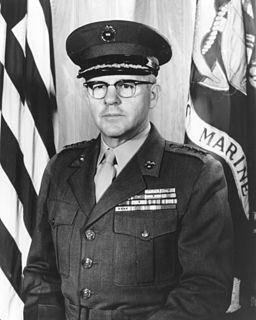A Quote by Thomas a Kempis
He is truly great who is little in his own eyes and makes nothing of the highest
Related Quotes
Because, you see, God - whatever anyone chooses to call God - is one's highest conception of the highest possible. And whoever places his highest conception above his own possibility thinks very little of himself and his life. It's a rare gift, you know, to feel reverence for your own life and to want the best, the greatest, the highest possible, here, now, for your very own. To imagine a heaven and then not to dream of it, but to demand it.
Nothing that is not a real crime makes a man appear so contemptible and little in the eyes of the world as inconsistency, especially when it regards religion or party. In either of these cases, though a man perhaps does but his duty in changing his side, he not only makes himself hated by those he left, but is seldom heartily esteemed by those he comes over to.
Originality cannot be a goal. It is simply inevitable. The truly pathbreaking step can never be predicted, and certainly not by the person who makes it at the time he makes it. He clears as he goes, evolves his own techniques, devises his own tools, ignores where he must. And his path cannot be retraced, because each of us is an original being.
Good work is no done by "humble" men. It is one of the first duties of a professor, for example, in any subject, to exaggerate a little both the importance of his subject and his own importance in it. A man who is always asking "Is what I do worth while?" and "Am I the right person to do it?" will always be ineffective himself and a discouragement to others. He must shut his eyes a little and think a little more of his subject and himself than they deserve. This is not too difficult: it is harder not to make his subject and himself ridiculous by shutting his eyes too tightly.
The wise man does nothing but what can be done openly and without falseness, nor does he do anything whereby he may involve himself in any wrong-doing, even where he may escape notice. For he is guilty in his own eyes before being so in the eyes of others; and the publicity of his crime does not bring him more shame than his own consciousness of it.
There is nothing little in God; His mercy is like Himself-it is infinite. You cannot measure it. His mercy is so great that it forgives great sins to great sinners, after great lengths of time, and then gives great favours and great privileges, and raises us up to great enjoyments in the great heaven of the great God.
Where no man thinks himself under any obligation to submit to another, and, instead of co-operating in one great scheme, every one hastens through by-paths to private profit, no great change can suddenly be made; nor is superior knowledge of much effect, where every man resolves to use his own eyes and his own judgment, and every one applauds his own dexterity and diligence, in proportion as he becomes rich sooner than his neighbour.
The galleries are full of critics. They play no ball, they fight no fights. They make no mistakes because they attempt nothing. Down in the arena are the doers. They make mistakes because they try many things. The man who makes no mistakes lacks boldness and the spirit of adventure. He is the one who never tries anything. His is the brake on the wheel of progress. And yet it cannot be truly said he makes no mistakes, because his biggest mistake is the very fact that he tries nothing, does nothing, except criticize those who do things.


































